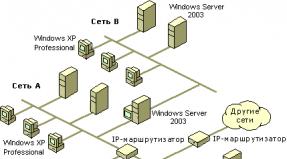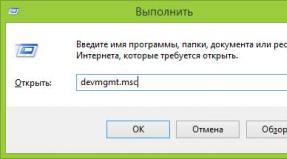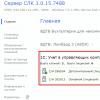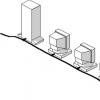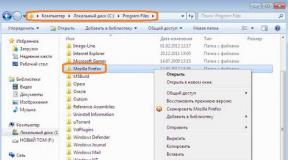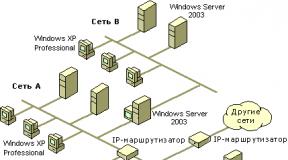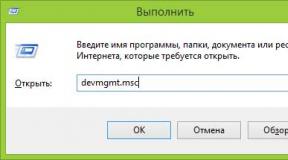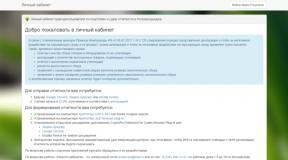Cellular communications in Russia will rise significantly in price
The government plans to increase contributions mobile operators. This decision will lead to an increase in tariffs
Communications may soon become more expensive. The government wants to increase fees from operators to the universal service reserve, where they currently contribute 1.2% of revenue from communication services.
As RBC writes, this is one of the options for fulfilling the order to support Crimea and the Kaliningrad region, for which it is necessary to find 165 billion rubles.
Last year, the reserve amounted to almost 14 billion rubles - a similar amount is budgeted annually for 2017-2019. Following a meeting with Deputy Prime Minister Dmitry Kozak, the relevant ministries were instructed to work on the issue of increasing operator contributions.General Director of the information and analytical agency TelecomDaily “As for the government’s idea to increase fees for universal communication services from operators, it seems to me that the government’s ideology is clear - in principle, there is nowhere else to take from, because in many areas taxes are collected more than once. Cellular operators work quite well, cellular telephone
Everyone has it, so taxes can be collected well, unlike, perhaps, some other taxes on property, transport, which are not always paid on time. But you need to understand that the cellular market, thanks to its competition and such, let’s say, non-interference of the state, has recently been actively coping with all the crises that have occurred in our country, and this increase, it seems to me, is completely wrong. Especially against the backdrop of the Yarovaya Law, adopted last year and still not in force, which also imposes a certain burden on operators. All this can once again lead to an increase in the price of cellular communication services, which, unlike other areas of business, such as, say, buckwheat or other food products, have never increased several times, but increased by 2-3% from year to year. " How much can communications become more expensive after an increase in fees from operators? Opinion in
— Operators have only one way to find money - take it from subscribers. In essence, this means an increase in tariffs. Rising tariffs slow down the development of networks and slow down the development of the economy. This is the last thing you need to do in Russia.
— How much can they increase fees, and, accordingly, how much can our communications become more expensive?
— Today we are talking about the fact that in 2017, communications prices will rise by about 25% on average. In 2018, the price increase will be up to 20%. If this fee is increased, today we can say that it will even be up to a 5% increase in tariffs. This is from what I voiced.
Gasoline prices will also rise. The Cabinet of Ministers approved an increase in excise taxes on fuel by 50 kopecks from January 1 and July 1, 2018. Additional budget revenues from this measure will amount to 55-60 billion rubles, experts say. Due to the increase in excise taxes, a liter of gasoline at retail may rise in price by 1.5%, or 60 kopecks.
Communications may soon become more expensive. The government wants to increase fees from operators to the universal service reserve, where they currently contribute 1.2% of revenue from communication services.
Last year, the reserve amounted to almost 14 billion rubles - a similar amount is budgeted annually for 2017–2019. Following a meeting with Deputy Prime Minister Dmitry Kozak, the relevant ministries were instructed to work on the issue of increasing operator contributions.
Denis Kuskov, General Director of the information and analytical agency TelecomDaily: “As for the government’s idea to increase fees for a universal communication service from operators, it seems to me that the government’s ideology is clear - in principle, there is no place else to get it from, because in many of us In each direction, taxes are collected more than once. Cellular operators work quite well, everyone has a cell phone, so taxes can be collected well, unlike, perhaps, some other taxes on property and transport, which are not always paid on time. But you need to understand that the cellular market, thanks to its competition and such, let’s say, non-interference of the state, has recently been actively coping with all the crises that have occurred in our country, and this increase, it seems to me, is completely wrong. Especially against the backdrop of the Yarovaya Law, adopted last year and still not in force, which also imposes a certain burden on operators. All this can once again lead to an increase in the price of cellular communication services, which, unlike other areas of business, such as, say, buckwheat or other food products, have never increased several times, but increased by 2-3% from year to year. "
How much can communications become more expensive after an increase in fees from operators? Opinion of leading analyst of Mobile Research Group Eldar Murtazin:
Operators have only one way to find money - take it from subscribers. In essence, this means an increase in tariffs. Rising tariffs slow down the development of networks and slow down the development of the economy. This is the last thing you need to do in Russia.
How much can they increase fees, and, accordingly, how much can our communications become more expensive?
Today we are talking about the fact that in 2017, communications prices will rise by about 25% on average. In 2018, the price increase will be up to 20%. If this fee is increased, today we can say that it will even be up to a 5% increase in tariffs. This is from what I voiced.
Gasoline prices will also rise. The Cabinet of Ministers approved an increase in excise taxes on fuel by 50 kopecks from January 1 and July 1, 2018. Additional budget revenues from this measure will amount to 55–60 billion rubles, experts say. Due to the increase in excise taxes, a liter of gasoline at retail may rise in price by 1.5%, or 60 kopecks.
And what does the future hold for us? What will happen to cellular tariffs and how will the market as a whole feel? Banki.ru recalled the important events of this year and tried to imagine what to expect from 2017.
The cost of communication services traditionally grows slowly. In the past year, a serious deterrent was the entry of the cellular operator Tele2 into the 3G/4G market (including Moscow), says Raiffeisenbank telecommunications and media analyst Sergei Libin: “The result of this was the introduction of unlimited tariffs by all operators, which ultimately resulted in a decrease income from cellular communication services." However, at the end of the year, Beeline CEO Morten Johnsen, at one of the last press conferences, voiced what, according to some experts, had long been on the minds of other mobile operators, calling tariff plans with unlimited Internet “the path to nowhere.”
There will be no unlimited
There is another problem with unlimited tariffs: according to experts, the low penetration of modern LTE smartphones has led to 3G networks being overloaded. However, next year the situation should begin to improve. According to the director of the procurement department of Euroset, Alexey Shirokov, the share of such smartphones on the market has more than doubled compared to January - October 2015. “Thus, LTE devices today occupy more than half of the smartphone market. In 2017, the trend towards increasing the share of LTE smartphones on the market will continue and by the end of the year it will be 70% in units and 90% in money. At the same time, we expect a reduction in the average price for these devices due to the emergence of LTE phones in cheaper segments,” he says.
While preparing this article about my intention to abandon unlimited tariffs, whose package of services was built precisely around unlimited Internet. Yota CEO Vladimir Dobrynin explained this by saying that the company’s tariffs have become uninteresting to consumers, including due to the high cost, which is formed precisely because of the availability of unlimited access to the Network. According to him, new tariffs are still being developed. But they will definitely include call and Internet packages and will be cheaper than the offers currently available from the company.
However, everything indicates that one way or another we will pay a little more for communications in 2017 than in the previous year: already in the second half of 2016, cellular operators began to revise the range of services. The old options stopped working, the current ones became more expensive (some twice as much), were moved to the “archive” relatively, and they were replaced by new, corrected versions. Old users practically did not notice the changes and will not notice them for some time, but new users will already exist in the new reality. Kirill Kucherov, director of the telecommunications services department at J"son & Partners Consulting, does not believe that the unit cost of services will increase. “But operators will do their best to increase ARPU ( AverageRevenuePerUser - average income per user. - Note Banki.ru) subscribers, primarily through package offers.”
In addition, in the past year, users received controversial automatically connected roaming packages. And no matter how much the Minister of Communications Nikolai Nikiforov would like to cancel national roaming, he cannot escape it: subscribers of some tariffs will have to pay subscription fee for communication services outside home region. And the statement of some mobile operators that the cost of overseas roaming will not rise during the New Year holidays should be taken with an eye to the fact that it has already recently become more expensive. In addition, there is a possibility of an increase in the cost of roaming in European countries due to the adoption of legislation regulating the cost of roaming in the European Union. This has already affected the cost of roaming in some European countries.
MVNO
Despite the “open door” for (Mobile Virtual Network Operator - a virtual cellular operator that provides communication services, but does not have its own infrastructure), there were no high-profile announcements this year. The exception is Rostelecom, which launched a virtual operator on Tele2 networks.
According to Armen Danielyan, Director for Strategic Development of ACG Business Profile, practice shows that offering standard service packages makes this business uncompetitive due to insufficient subscriber coverage. “In today’s conditions, only MVNO operators that offer unique products that have a target consumer audience that is different from the Big Four operators can survive and expand their business.
MTT General Director Evgeny Vasiliev shares a similar opinion. At a press conference on December 22, he said that not a single MVNO operator will be able to compete with existing players and only “narrow” niche solutions will survive: “We understand that MVNO will not go towards an alternative to the Big Four, it seems to us that this is a rather utopian scenario […] We believe that at the moment the market has matured to the point where mobility can be very niche, and mobile operator can operate at the level of several thousand subscribers. And in this sense, it is no longer a completely independent product, but part of another solution.”
In this regard, two MVNO projects that could start operating in 2017 are extremely interesting. One of them is developing the social network VKontakte. On December 23, it became known at whose facilities the virtual operator will be deployed. MegaFon announced the decision of the board of directors to convene a meeting of shareholders to approve the purchase of 11.5 million class A shares and 21.9 million ordinary shares in the capital of Mail.Ru Group Limited. According to the company, “the transaction is aimed at achieving significant synergies for both companies, including product line expansion and […] launch special offer VKmobile for users social network"In contact with".
“Both brands (VKontakte and Sberbank) have a significant user base and, in my opinion, can offer their customers incentives to use MVNOs, for example, bonuses on a Sberbank card account or virtual currency for using cellular services. Other options are possible, but in general the MVNO business in Russia looks less attractive for subscribers compared, for example, with EU countries, since thanks to competition, cellular tariffs are already among the lowest in the world,” says Sergey Libin from Raiffeisenbank .
Shering and the Yarovaya Law
“Already in 2016, the market for communication services, including cellular communications, showed signs of saturation in terms of volume in monetary terms. Next year, operators will obviously try to reverse this trend different ways. But it will not be easy for them to do this, taking into account a number of negative factors that will impact the industry: the implementation of the provisions of the “Yarovaya Law”, the expected reduction in independent cellular retail, the increase in operators’ costs for roaming in the European Union, close attention to pricing for cellular services from the FAS,” predicts Kirill Kucherov from J"son & Partners Consulting.
If we talk about cellular retail, experts fully admit the division of Euroset by VimpelCom and MegaFon. “This would allow operators to reduce the number of mobile phone stores and reduce dealer commissions,” says Sergei Libin. In general, operators have started talking about the redundancy of SIM card sales points and are planning to reduce their number.
Another important change in 2017 in the telecom market, according to Armen Danielyan, may be the sharing of infrastructure. “Although most market participants have already adapted to doing business in the conditions of the devaluation of the ruble that occurred two years ago, following the path of import substitution, mobile operators still have problems with rising costs of capital investments,” he says. - Therefore, leading mobile operators are striving for consolidation in infrastructure development. For example, separating the construction and operation of networks into a separate business allows you to generate income through their ( sharing networks leased by several operators)".
Another important component that can significantly change the communications market is the “Yarovaya Law”. Its implementation could lead to small companies disappearing from the market. “If the pessimistic scenario for operators for implementing the provisions of the Yarovaya Law comes true, then small and medium-sized operators will have no choice but to leave the market or sell their business to large operators. Moreover, this will happen in both the fixed-line and cellular business,” says Kirill Kucherov.
Moscow department information technologies(DIT) analyzed pricing policy operators in Moscow and found out that for six months (from August to January) tariffs only grew.
Five package tariffs increased by 6–22%, not a single one decreased, DIT said in a statement. The sets of services included in the package also changed. For example, Internet traffic changed for six tariffs: in three it decreased by 33–50%, in three others it increased by the same amount. The number of included minutes in three tariffs decreased by 9–16%, and in five it increased from 10 to 50%, DIT reported.
The department studied all the bulk tariffs of the Big Four operators that are available for connection. The study did not take into account specialized offers - for pensioners and migrants, tariffs for devices. DIT did not disclose which tariffs for which operators increased.
T2 RTK Holding (Tele2 brand) has not increased the prices of package tariffs over the past six months, assures its representative Konstantin Prokshin. This happened in the spring of 2016, but was accompanied by a proportional increase in the Internet and minutes included in the package voice calls. With regard to VimpelCom, the conclusions are irrelevant, insists its representative Anna Aibasheva: the last time the current tariffs changed was in November, when the option of unlimited LTE appeared, but the price and included services did not change. Representatives of MTS and Megafon declined to comment. The DIT research methodology is not known, explains a Megafon representative.
Decrease mobile traffic In package offers, DIT is observing tariff monitoring for the first time in two years: previously included traffic was growing steadily, says DIT analyst Evgeny Alminov. He explains this phenomenon by operators preparing for increased traffic costs due to the adoption of the Yarovaya Law (anti-terrorism amendments requiring operators to store certain traffic).
Another reason – Tele2’s entry into the Moscow market – has already been won back and no longer affects the tariff policy of operators, Alminov continues. Finally, the rapid growth of mobile traffic has resulted in extreme load on networks.
The price increase is understandable: operators want to increase ARPU, says Raiffeisenbank analyst Sergei Libin. This figure has been falling over the past year due to tariffs from unlimited internet, which operators became interested in after the release of Tele2, says Libin. Now you can only make money on the Internet, agrees Mobile Research Group analyst Sergei Potresov. Voice traffic is of no interest to anyone and operators want to earn more on smaller packages so that subscribers buy additional traffic, he argues. They have no other ways to increase revenue: unlimited tariffs– this is a dead end, Potresov is sure. Inflation also pushed for tariff increases, he adds.
If the price increase continues, it will most likely be hidden for subscribers: for example, a deterioration in the terms of the plan while maintaining total cost, argues Alminov. At the same time, the number of SMS and voice minutes may grow, while their demand is falling, he believes.
For ten whole years, prices for mobile Internet and communications in Russia, throughout the country, have been gradually falling. This was the case until approximately 2015, when, due to circumstances unknown to many, the cost of voice services and Internet traffic began to rise. At first it was difficult to notice, since the price tags jumped only 5-10%, but now it is clear that minutes, megabytes and SMS messages have risen significantly in price.
There is a simple explanation for all this - the dollar exchange rate. Although the mobile operators MTS, MegaFon, Beeline and Tele2 operate in Russia, the cost of their services directly depends on the exchange rate. If the ruble is cheap on the world market, then prices will rise. For example, if suddenly the dollar rises in price to 120 rubles, then prices Russian operators at first they will be at the same level, but then they will start shaking out additional money from subscribers.
The whole secret is that Russian cellular operators need an infrastructure that allows them to provide subscribers with access to the Internet, voice services and SMS messages. Since all the equipment for these purposes is not produced in Russia, it is purchased, in most cases, for dollars. Accordingly, if the dollar exchange rate rises, then the purchase cost of equipment for data centers, base stations, highways and other elements global network increases.
Russian operators are striving to introduce the latest developments, for example, MegaFon and MTS for the 2018 FIFA World Cup. The most advanced equipment today, which is produced by Qualcomm, Nokia, Intel and other companies, costs a lot of money, and it is purchased for dollars, not Russian rubles.
Hence it turns out that mobile Internet and communications are becoming more expensive in Russia, since their prices almost directly depend on the dollar exchange rate. It is obvious that the operators MTS, MegaFon, Beeline and Tele2 cannot stop developing their coverage area and introducing new standards, since Newest technologies smartphones, tablets and other devices require the most modern equipment.
So, for example, this summer in one of the cities of Russia, which subscribers of the MegaFon operator can already use. Ultimately, subscribers have to pay for all these things, and if tomorrow the dollar suddenly rises in price to 100 rubles, then prices for all services of cellular operators will soon begin to rise. This is the bitter truth about why mobile Internet and communications are becoming more expensive in Russia.
Don't miss your chance! Until April 21 inclusive, everyone has a unique opportunity to use Xiaomi Mi Band 3, spending only 2 minutes of their personal time on it.
Join us on
